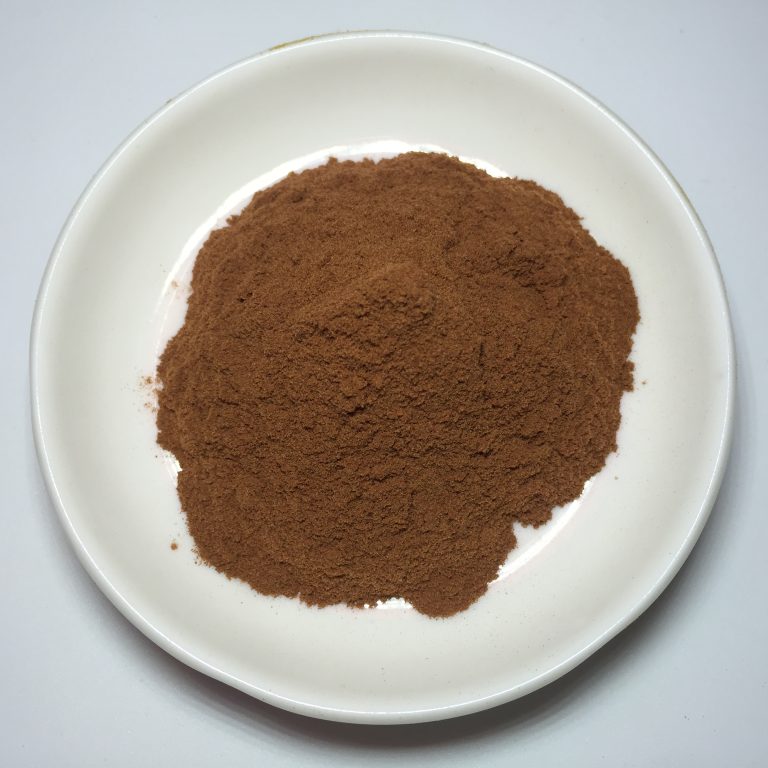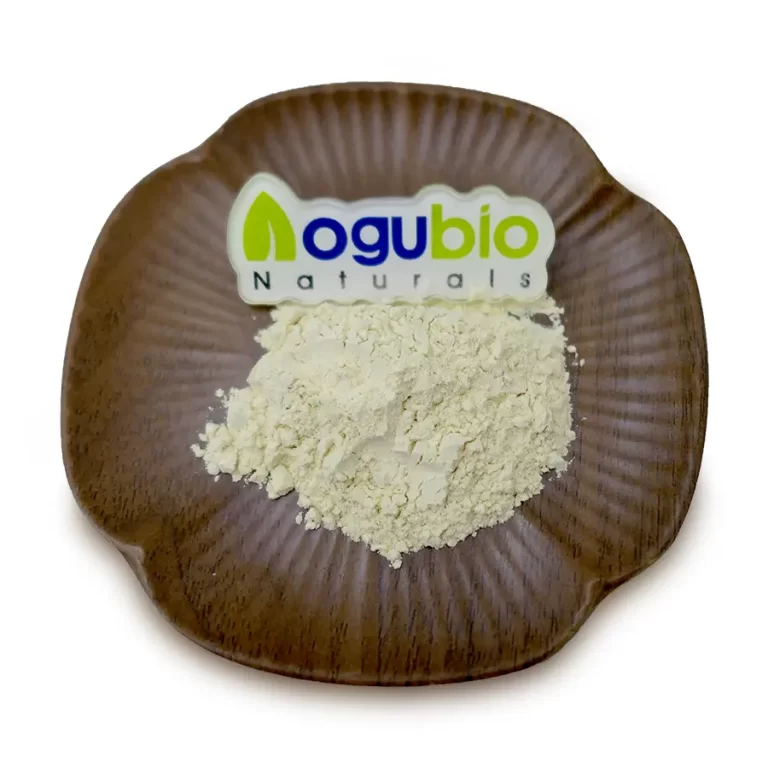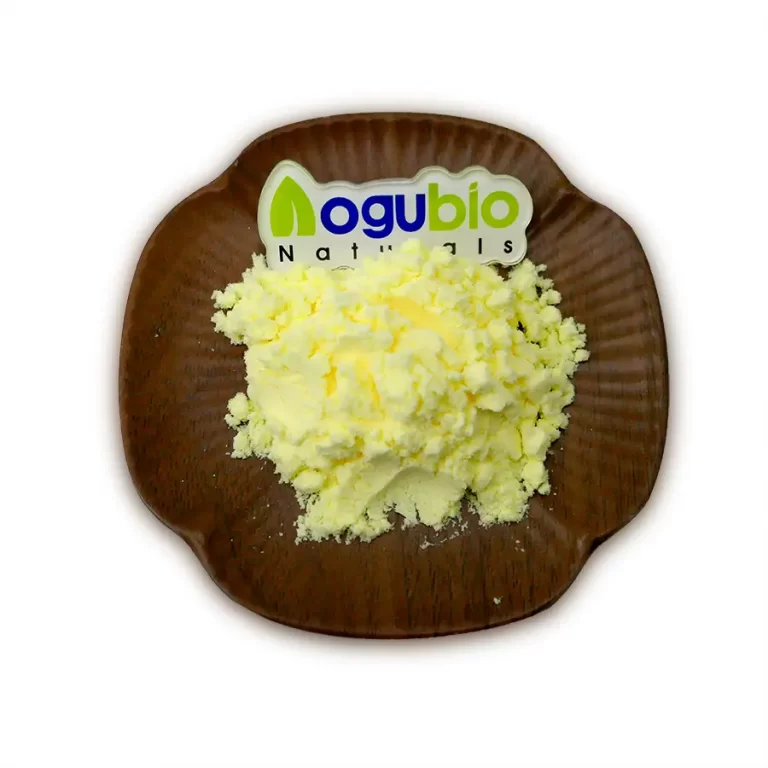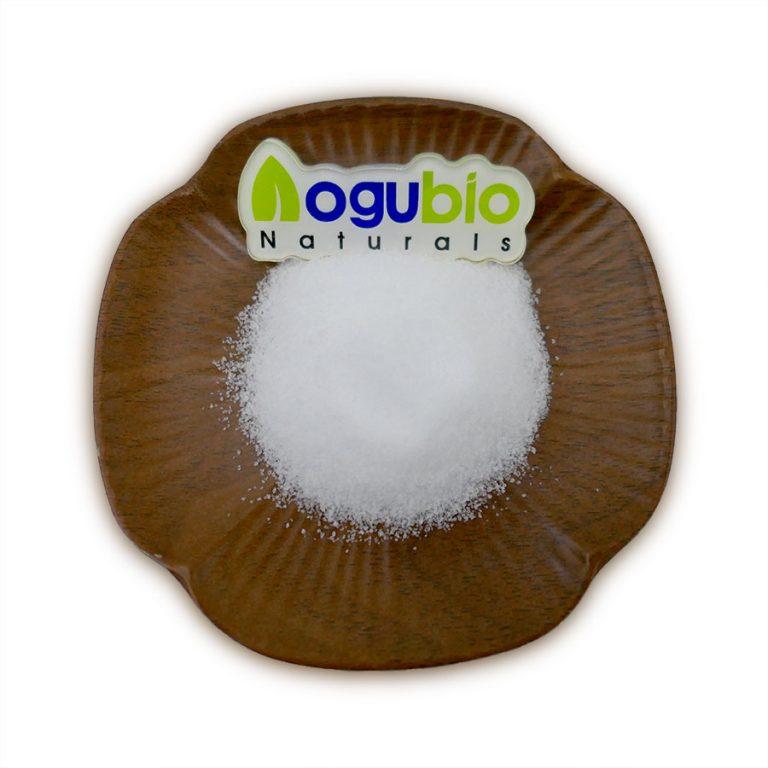Apigenin 98%/Cas no.:520-36-5
2019-09-18
| Product Name | apigenin 98% |
| Other names | Apigenine; biapigenin, Chamomile; Apigenol; Spigenin; Versulin; 4′,5,7-Trihydroxyflavone; |
| Source | Chamomile, Matricaria recutita, Asteraceae, parsley, celery, Matricaria chamomilla, Apium graveolens, purely Synthesis |
| CAS number | 520-36-5 |
| Molecular Formula | C15H10O5 |
| Molecular Weight | 270.24 |
| Specifications | 98%, 1% |
| Appearance | Little yellow powder |
What is Apigenin 98%?
Apigenin is a flavonoid present in many fruits and vegetables. Its most abundant in parsley, celery, celeriac,and chamomile tea. It is known for its anti-inflammatory, anti-carcinogenic, and antioxidant properties.
It is commonly used to reduce anxiety when administered in high doses. It may also be used as a sedative. It is also used to dye wool in its yellow crystalline solid form.

Suggested Use:
- Decreasing inflammation
- Blocking the enzyme COX-2 which is responsible for tumor formation
- Lowering cholesterol and obesity indicator levels
- Protecting neurons in patients with stroke
- Helping mood and brain function
- Lowering cortisol
- Reducing blood sugar levels
- Improving bone healing
- Healing skin conditions like dermatitis
- Lowering blood pressure
- Promoting sleep
Common Dosage: 3 mg to 10 mg per kg body weight
Benefits of taking apigenin supplements:
Like most flavonoids, apigenin has anti-inflammatory, anti-tumor, anti-spasmodic properties, and acts as an antioxidant. The most widespread research has been for its potential to fight cancer.
Researchers are investigating its potential to promote cellular health within various tissues. The most promising work is being done with regard to the prostate, but research shows benefit within other tissues as well. As the investigations continue, Apigenin’s potential as a powerful agent for human health just keeps adding up.








 Imaherb China manufacturer supply Apple Extract Powder
Imaherb China manufacturer supply Apple Extract Powder Imaherb China manufacturer supply Apigenin Powder 98%
Imaherb China manufacturer supply Apigenin Powder 98% Imaherb Factory supply Alpha Lipoic Acid Powder CAS 1077-28-7
Imaherb Factory supply Alpha Lipoic Acid Powder CAS 1077-28-7 Imaherb Factory supply Alpha GPC Powder CAS 28319-77-9
Imaherb Factory supply Alpha GPC Powder CAS 28319-77-9 Imaherb Factory supply Alliin Powder 98% CAS 556-27-4
Imaherb Factory supply Alliin Powder 98% CAS 556-27-4 skype
skype Sales Manager
Sales Manager Rebekah
Rebekah Rachel
Rachel Miranda
Miranda Camilla
Camilla
 Sales Manager
Sales Manager